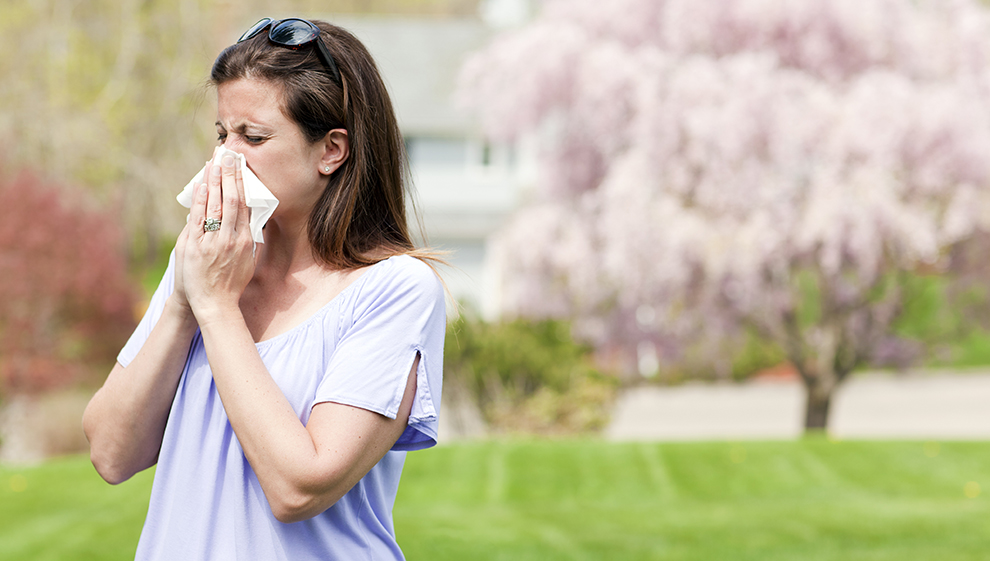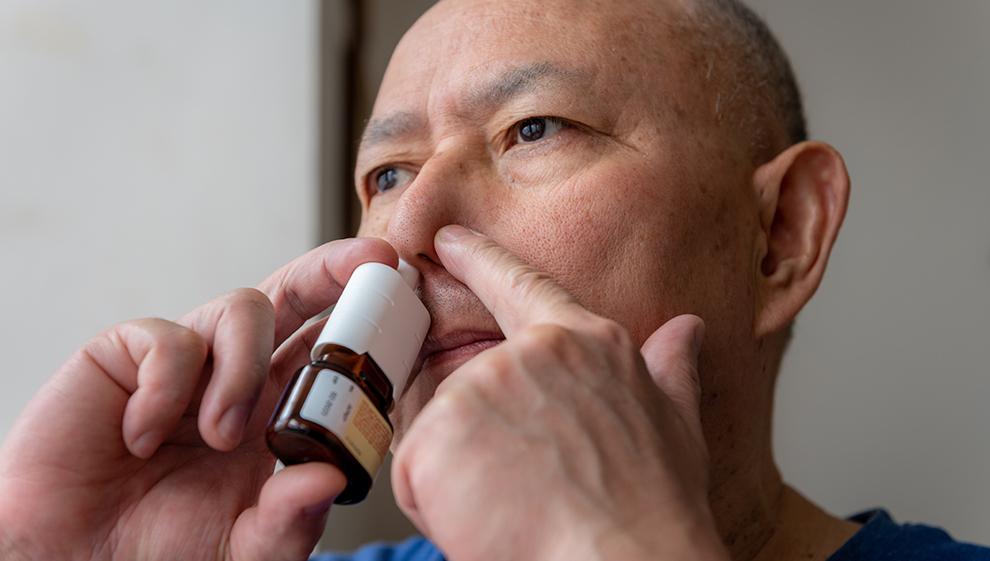How to deal with hayfever | Symptoms and treatments
- Overview
What is hayfever?
Hayfever is a type of allergic rhinitis, which translates to having an allergy in your sinus passages or airways. This can be made worse through seasonal pollen, usually from trees, grass and flowers. It can also be related to environmental factors, like household dust, or occupational factors such as debris or dust from workplaces.
Hayfever is referred to as seasonal allergic rhinitis. This type of allergic rhinitis is specifically related to pollen. It starts from tree pollen, then grass then flowers – the type of pollen you’re allergic to will dictate when symptoms start and stop.
Symptoms can appear as early as February, as this is when tree pollination starts. In early spring and summer it’s often linked to grass, then towards the middle or late summer it comes from flowers. Some people may be impacted for the full duration, otherwise it can be shorter, depending on which type of pollen an individual is allergic to.

What are the symptoms of seasonal allergic rhinitis?
There are different severities of hayfever, normally falling into three categories: mild, moderate and severe. Within these categories, an individual will usually experience either intermittent or persistent symptoms.
There isn’t a ‘one size fits all’ set of symptoms, as it comes down to the type of pollen you are allergic too and how your body responds to the allergies. The most common symptoms, as well as where they are normally found, are:
Sinus-related symptoms
- Runny nose
- Blocked nose
- Sneezing
- Itchy nasal passages
- Headaches (from sinus pressure)
Ocular-related hayfever symptoms
- Mild itchy eyes
- Watery eyes
- Discharge
- Allergic conjunctivitis – normally experienced in those with a more severe allergy. It can result in redness around the eyes, stringy mucus discharge and swollen eyelids
- Chemosis – a severe symptom where the white of the eye becomes swollen
Respiratory-related hayfever symptoms
- Tightness in the chest
- Wheezing when breathing out
- Shortness of breath in exertion
- The symptoms can sometimes mimic asthma, however allergic rhinitis can co-exist with asthma and eczema. Asthma, eczema and allergic rhinitis are referred to as the ‘atopic triad’, which is the way the body responds to environmental allergens and can be a result of genetic predisposition.
Ways to manage hayfever symptoms
Normally when you have an allergy, the most common way to manage it is to avoid the trigger. However, trying to steer clear of any type of pollen from the months of February to September in the UK is nearly impossible. The best ways to manage hayfever symptoms are:

Control the symptoms: non-drowsy anti-histamines are now readily available to purchase over the counter if symptoms are mild.
Try to plan ahead: take any medication you require to help with symptoms before you go out or have them to hand in case they become exacerbated.
Target treat: if your symptoms are only impacting one specific area, target treat this symptom in the following ways:
- For sinuses, you could use over the counter steroid nasal spray or try steam inhalation using eucalyptus oil, Olbas Oil or Vaporub. I would recommend avoiding long term decongestion nasal sprays as regular use of these can trigger chronic sinusitis.
- For the eye area use an anti-allergy eye drop. Over the counter drops cannot be used with contact lenses present so be mindful of this if you wear them.
- If your respiratory system is impacted, you may require an inhaler prescribed by your GP.
- In some cases, medication may be needed to treat all three areas.
Over the counter medications are useful for managing mild symptoms, however, if they persist you will need to visit your GP as prescription strength antihistamines, steroid nasal spray and eye drops safe for contact users can be prescribed.
If you suffer with severe hayfever, a GP has the option to provide inhalers or oral steroids, as well as other medications, to help manage the overactive immune system.
More than one allergy?
Research published by Allergy UK shows that almost half (48%) of people suffering have more than one allergy. If you suffer with more than one allergy, targeting what’s triggering you at any given time can be difficult.
Data also suggests that allergies are becoming more and more common, with the least likely to suffer demographic group being pensioners. Allergy testing is a great way to learn more about your allergies and their triggers, and over-the-counter antihistamines are taken by many to alleviate symptoms.
Testing can help you figure out the severity of each trigger and give an insight into the practical and preventative measures you can take to minimise your symptoms. For example, you may think that summer brings out your hay fever, when in fact it’s your dog shedding hair in the spring that’s causing your reaction.
Last updated Friday 13 October 2023
First published on Wednesday 22 March 2023

